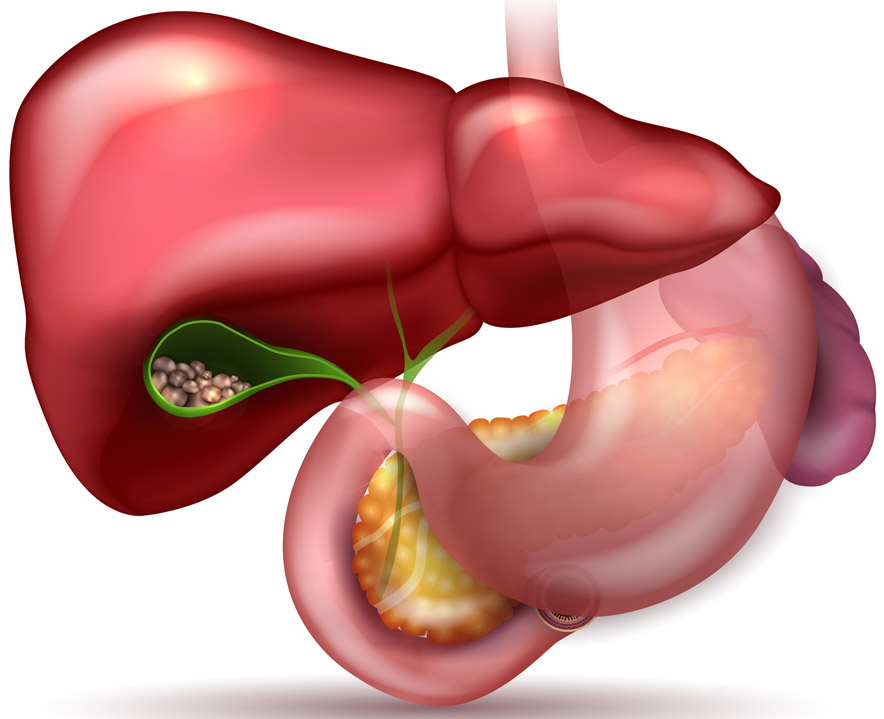Gallbladder Polyp

A gallbladder polyp is a growth or lesion that develops in the gallbladder, the small organ located under the liver that stores bile. While most gallbladder polyps are benign (non-cancerous), some can lead to complications or indicate a more serious condition, such as gallbladder cancer. Understanding gallbladder polyps, their symptoms, causes, and treatment options is important for early diagnosis and prevention of complications.
What is a Gallbladder Polyp?
A gallbladder polyp is a small, protruding growth that forms on the inner lining of the gallbladder. These polyps can vary in size, and while the majority are benign, some may become malignant or lead to other health issues. Gallbladder polyps are generally discovered during routine imaging tests like ultrasound, as they often don’t show symptoms in the early stages.
Symptoms of Gallbladder Polyps
Most people with gallbladder polyps don’t experience any noticeable symptoms. However, in some cases, individuals may experience:
- Abdominal pain: Particularly in the upper right side of the abdomen.
- Nausea and vomiting: Often occurring after meals.
- Indigestion: Feeling bloated or uncomfortable after eating.
These symptoms are often mistaken for other gastrointestinal conditions, so it’s important to consult with a doctor for a proper diagnosis.
Causes of Gallbladder Polyps
The exact cause of gallbladder polyps is not fully understood, but several factors may contribute to their development:
- Chronic inflammation: Conditions like gallstones or cholecystitis (inflammation of the gallbladder) can cause the lining of the gallbladder to thicken, leading to polyp formation.
- Gallstones: The presence of gallstones may be associated with an increased risk of polyps.
- Obesity: Studies have suggested that being overweight or obese may be a risk factor for developing gallbladder polyps.
- Age and Gender: Gallbladder polyps are more common in people over the age of 50 and are more likely to affect women.
Types of Gallbladder Polyps
Gallbladder polyps are classified into different types based on their structure and characteristics. The most common types include:
- Cholesterol Polyps: These are the most common type of gallbladder polyp and are typically benign. They occur when cholesterol accumulates and forms a polyp-like growth.
- Adenomas: These are rare polyps that are more likely to become malignant (cancerous). They require careful monitoring and may need to be removed.
- Inflammatory Polyps: Caused by chronic inflammation of the gallbladder, these polyps usually don’t pose a significant risk unless they grow large.
- Cancerous Polyps: Although rare, some polyps can develop into gallbladder cancer. This is why any detected gallbladder polyp should be monitored.
Diagnosis of Gallbladder Polyps
Gallbladder polyps are often discovered incidentally during routine imaging tests like:
- Ultrasound: The most common imaging test used to detect gallbladder polyps. It uses sound waves to create an image of the gallbladder and can identify polyps.
- CT Scan or MRI: In some cases, further imaging tests may be used to assess the size and nature of the polyp.
If the polyp is larger than 1 cm, or if it is accompanied by symptoms, the doctor may recommend further investigation or surgery.
Treatment for Gallbladder Polyps
Treatment for gallbladder polyps depends on their size, type, and whether they are causing symptoms. Options include:
- Monitoring: Small polyps (less than 1 cm) that are not causing symptoms may simply be monitored through regular imaging tests.
- Surgical Removal: If the polyp is larger than 1 cm, causing symptoms, or suspected to be malignant, surgical removal of the gallbladder (cholecystectomy) may be recommended. This can be done through laparoscopic surgery, a minimally invasive procedure that allows for quicker recovery and fewer complications.
- Medications: If the polyp is related to gallstones or inflammation, medications to treat these conditions may be prescribed.
Why Choose Dr. Ankur Bhanushali for Gallbladder Polyp Treatment?
Dr. Ankur Bhanushali is a highly skilled laser and laparoscopic surgeon with expertise in the diagnosis and treatment of gallbladder conditions, including gallbladder polyps. He offers advanced, minimally invasive treatments to help patients achieve the best outcomes, with a focus on reducing recovery time and improving quality of life.
Visit Dr. Ankur Bhanushali for Gallbladder Polyp Treatment
If you suspect that you may have a gallbladder polyp, or if you have been diagnosed with one, consult with Dr. Ankur Bhanushali for expert care. He specializes in laparoscopic surgeries for gallbladder conditions, offering the latest techniques and compassionate care to ensure the best possible outcome for his patients.
📍 Visit Dr. Ankur Bhanushali – Laser & Laparoscopic Surgeon
1st Floor, Aayush Multispecialty Hospital, Marigold Apartment, Almeda Road, Panch Pakhdi, Thane West – 400602
🌐 Website: https://www.drankurbhanushali.com
📍 Google Maps: https://maps.app.goo.gl/3Msc7YZqVkV9mQMQ7
📧 Email: dr.ankur.bhanushali@gmail.com
🔗 Facebook: https://www.facebook.com/profile.php?id=61573840205822
🔗 Instagram: https://www.instagram.com/surgeon_dr_ankur_bhanushali
🔗 LinkedIn: https://www.linkedin.com/in/dr-ankur-bhanushali-b85aab2a6/
Early diagnosis and treatment are key to managing gallbladder polyps effectively. Contact Dr. Ankur Bhanushali today for a consultation and expert care in the management of gallbladder conditions.
